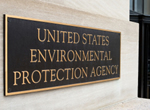
The short answer is probably not. But this does not mean that the EPA will not undertake enforcement against a tenant who fails to meet specific criteria intended to establish good faith within the CERCLA process. Those criteria are virtually identical to criteria the EPA uses to establish the bona fide prospective purchaser (BFPP) liability exclusion provided by CERCLA Section 107(r)(1).
Essentially, the tenant, like the BFPP, must not add hazardous substances to the site, must take reasonable steps to prevent releases from the site, must comply with land disposal restrictions and institutional controls, and must cooperate with any agency requests for information, assistance, and access. Also, a tenant that is affiliated with a PRP (apart from the lease agreement) will not qualify for the BFPP exclusion. In other words, the fact that a party is just a tenant does not automatically trigger the exclusion.
Forget expensive calls to lawyers and consultants. With Enviro.BLR.com, you get instant access, 24/7. Try it out today and get the NEW 2013 EHS Salary Guide, absolutely free. Download Your Free Report.
These and other criteria that must be met to enjoy EPA’s enforcement discretion (in this context, this phrase indicates a bias on EPA’s part to not take an enforcement action) can be open to broad interpretation, which has not caused tenants to line up to rent properties in the shadow of CERCLA. Since the EPA is a staunch advocate of businesses stepping forward to clean up contaminated properties and/or using those properties to grow the economy and create jobs, the Agency periodically issues guidance about when it will exercise its enforcement discretion regarding BFPPs and tenants on contaminated properties.
The latest guidance addresses the following two scenarios.
Tenants Where the Owner is a BFPP
Under CERCLA a tenant may derive BFPP status from an owner who satisfies the BFPP criteria. The CERCLA requirement to conduct an all-appropriate inquiry (AAI) does not apply to the tenant if the owner already met this requirement. See the definition of AAI below.
In this case, the Agency will consider the tenant a BFPP provided the owner maintains its own BFPP status and the tenant does not impede the performance of a response action or natural resource restoration. The main question here is what happens to the tenant if the owner loses its BFPP status? That could happen because of actions by either the owner or the tenant. Should the tenant be responsible, the EPA indicates that neither the owner nor the tenant would be considered BFPPs. The situation differs if the tenant has derivative BFPP status through the owner, and the owner loses its status through no fault of the tenant. In such cases, the EPA may choose to exercise its enforcement discretion upon confirming that the renter is meeting the BFPP criteria. The Agency emphasizes that this will be a site-specific decision, another way of saying that a close examination of all factors showing whether the tenant meets the BFPP criteria will be conducted.
Need an answer fast? Relax. Our editors guarantee a personalized response to your questions within 3 business days. Take a free trial of Enviro.BLR.com and see what everyone is talking about. For a limited time, also receive the NEW free report: 2013 EHS Salary Guide. Download Your Free Report
Tenants Where the Owner is Not a BFPP
Here the tenant must again satisfy the BFPP criteria, including the AAI requirement. An AAI is an assessment or evaluation of a property to identify potential environmental contamination and assess potential liability for any contamination present at the property. In addition, under CERCLA, to qualify for BFPP liability protection, a person must have acquired the property after January 11, 2002. The EPA says it intends to treat tenants as BFPPs if their lease agreements were executed after January 11, 2002, and they meet the other BFPP criteria.
Other Factors
The guidance notes several other conditions when the EPA will not exercise its enforcement discretion. For example, the BFPP designation will be withheld if it is determined that the tenant actually contributed to contamination at the site. Also, the Agency does not generally engage in business discussions between an owner and a potential tenant regarding leasing. However, the Agency adds that there may be “limited instances” where the EPA determines that it would be necessary and appropriate to address a tenant’s concerns about a particular property through an existing tool (e.g., a comfort/status letter or a prospective lessee agreement). In addition, the EPA says it may use such tools on a case-by-case basis where it is appropriate to address the concerns of tenants not covered by the current guidance to further the public interest.
